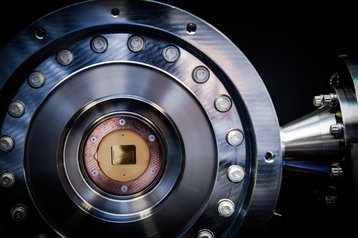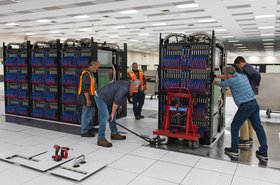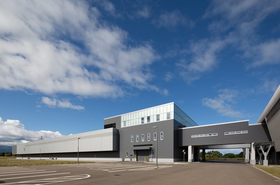Quantinuum has successfully deployed its Reimei quantum computer at the Wako, Saitama, campus of Japanese research institute Riken.
The H1-Series ion trap system is now fully operational and will be used to accelerate quantum applications across physics and chemistry.
Powered by Honeywell, the Quantinuum H1-1 ion trap quantum computer contains 20 fully connected qubits that sit across five Quantum Charged Coupled Device (QCCD) zones. The machine will work in tandem with Riken’s Fugaku supercomputer, creating what Quantinuum described in a statement as a “cutting-edge quantum-HPC hybrid platform designed to tackle computations that surpasses the capabilities of traditional supercomputers.”
The installation of Reimei at Riken marks Quantinuum's first on-premise delivery of a system. The deployment was supported by the New Energy and Industrial Technology Development Organization (NEDO), a national research and development agency under Japan’s Ministry of Economy, Trade and Industry.
“This installation represents a pivotal moment for our global strategy, marking the first on-site deployment of our quantum technology outside the US,” said Dr. Rajeeb Hazra, president and CEO of Quantinuum. “We are eager to collaborate with Riken exceptional researchers, whose expertise will be instrumental in driving unprecedented scientific breakthroughs.”
In addition to housing Reimei, Riken is also home to Japan’s first quantum computer, which went online in April 2023. That superconducting machine currently has 64 qubits, but the institute has previously acknowledged the computer will need to increase this number to one million qubits to become more widely used.
Quantinuum was founded in 2021 when Honeywell spun out its Quantum Solutions division and merged it with UK quantum computing startup Cambridge Quantum Computing. Honeywell owns a 54 percent stake in Quantinuum. IBM is also an investor.







